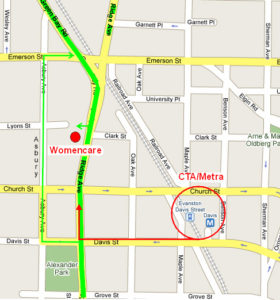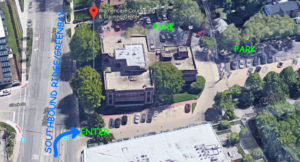By Laurie Kahn
March, 2002
Maria walked into my office for her first appointment. Her complexion was untarnished by life’s worries, acne or damage of the wind or sun. Her hair was pulled back, almost glistening. Tall with long legs and not a hint of body fat, she shook my hand, smiled and sat down.
Maria began by telling me, in slightly accented English, that she was visiting the United States to finish a graduate degree. She was nearing the end of the program and had been an excellent student. She was living with her fiancé, who she described as a wonderful, handsome man who was from one of the wealthiest families in her country. I began to wonder – why is this woman in my office? I am not used to clients with fairy-tale lives, in which the prince really does show up.
As the session continued, I became restless. I asked her, “Can you tell me something about your family?” Perhaps there was some dark secret, a betrayal, loss of a mother at an early age.
She said she had grown up in a loving family and always felt very well cared for. Upon further reflection, she recalled having had some arguments with her mother during adolescence.
Maria continued that people in her home town were excited about her upcoming wedding, knowing it would be spectacular. The plans were proceeding on schedule – a full orchestra had been hired, the flowers were ordered, with white roses as the dominant theme. As my impatience and envy began to blend into an unfamiliar mix of emotions I blurted out: “So why are you here?”
Her eyes filled with tears. “I am having a terrible time getting along with my future mother-in-law.” That’s it? I thought to myself. It sounded like a challenge for Dear Abby. Reluctantly, I agreed to another appointment for the following week.
The next week she arrived exactly on time for her afternoon appointment.
I noticed I began to feel self-conscious, thinking of my wrinkled clothes, my hair that I hadn’t brushed since that morning, just before I ran out of the house with a pop tart in my mouth. I looked down at my hands to see my nail polish half chipped off. She looked like a model, the kind with the natural look.
“My fiancé’s mother is so pushy and demanding” she began. “I know she wants the best for us”, she added, probably in order not to appear too negative, “but she keeps taking over the wedding plans. I want a wedding that is simpler and not so elaborate.” “So what happens when you express yourself?” I asked.
“She gets mad and stops talking to me.”
I searched unsuccessfully for an empathic response. Then I realized: Maria had no experience with adversity. No experience standing up for what she believed in the face of someone’s disapproval. No experience soothing herself after taking a risk and appearing foolish. No experience recovering from rejection and reclaiming her self-worth. She lacked that secret supply of confidence that only evolves from having slain some of life’s dragons.
I felt my heart warm as Maria and I began to discuss the challenges of developing resiliency and finding a voice.
My next client typically arrived ten minutes late. Her childhood had more in common with the fairy tale Cinderella, the part before she gets to go to the ball. In grade school she would get herself and her younger sister up for school while her alcoholic mother was passed out on the couch. At age eight she learned to talk to creditors on the telephone to try to keep the phone and electric service from being turned off. For three weeks during the summer of her eleventh birthday, she was left home alone in charge of her younger sister with grocery money and a three-mile walk to the nearest store.
As a child and adult she had routinely performed acts of courage. Her resilience and tenacious spirit were unquestionable. What she lacked was a belief in happy endings. For the first time, she was dating a man who was kind and loving. She had remarked to me that she used to think people were lying when they said they had good relationships. Now she was beginning to think it was possible. As she said this, she had smiled like a kid who had discovered a new flavor of ice cream.
I have witnessed many clients build good lives out of the ashes and cinders of broken dreams. I’ve admired their ability to regain faith when they have been betrayed. I have been inspired by their willingness grieve losses and transform their lives. Some might willingly change places with Maria. Yet, it is comforting to know that in the dark moments that we have the capacity to persevere, and to triumph in the face of adversity.
 Whether we are overwhelmed by work or school; our families or communities; caretaking for others or ourselves; or engagement in social justice, environmental advocacy, or civil service, just a few subtle shifts can help sustain us. Laura van Dernoot Lipsky, bestselling author of Trauma Stewardship, shows us how by offering concrete strategies to help us mitigate harm, cultivate our ability to be decent and equitable, and act with integrity. The Age of Overwhelm aims to help ease our burden of overwhelm, restore our perspective, and give us strength to navigate what is yet to come.
Whether we are overwhelmed by work or school; our families or communities; caretaking for others or ourselves; or engagement in social justice, environmental advocacy, or civil service, just a few subtle shifts can help sustain us. Laura van Dernoot Lipsky, bestselling author of Trauma Stewardship, shows us how by offering concrete strategies to help us mitigate harm, cultivate our ability to be decent and equitable, and act with integrity. The Age of Overwhelm aims to help ease our burden of overwhelm, restore our perspective, and give us strength to navigate what is yet to come.


